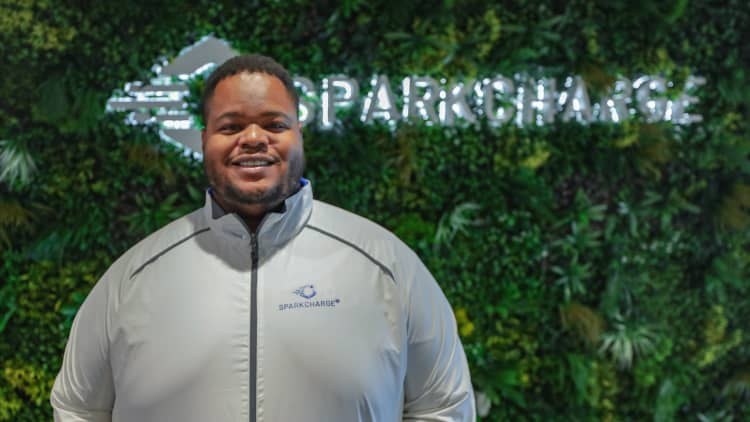Move over IQ and EQ. There's a new way to predict success: XQ, or experiential intelligence.
Rather than book smarts or empathetic abilities, experiential intelligence is a measure of how your life experiences have shaped the way you think, what you know and how you use that knowledge.
"[It's] the combination of mindsets, abilities and know-how gained from your past experiences," Soren Kaplan, author of the book "Experiential Intelligence: Harness the Power of Experience for Personal and Business Breakthroughs," tells CNBC Make It.
While Kaplan's book published on Tuesday, the term itself isn't new: A psychologist named Robert Sternberg proposed the concept decades ago.
But with the rise of EQ's popularity in recent years, Kaplan — an affiliate research scientist at the University of Southern California's Marshall Business School — says it's time to start considering XQ alongside other other intelligence tests purported to measure success.
Especially with the rise of AI programs like ChatGPT poised to "commoditize the content in your head," humans need more varied ways to analyze the concept of intelligence, he adds: "When that happens ... what's left? It's our experiences."
And while you might work to improve your EQ, for example, you don't require training to start applying experiential intelligence to your own life.
"Everyone has experiential intelligence," Kaplan says. "This isn't something new you have to learn about. It's been hidden in plain sight."
How to measure your experiential intelligence
Unlike other personality or intelligence tests, you can't get a concrete XQ "score." But you can still tangibly measure it, which helps you start using it to build success, Kaplan says.
Start by taking a snapshot of your most impactful experiences thus far. Think back to a major life event that's still vividly with you — like if you moved around a lot as a child, and distinctly remember that feeling of instability.
Next, think about the beliefs you might've internalized from that experience. Maybe you find it difficult to commit to new people or places, knowing how regularly those things changed in the past.
It's OK if you aren't conscious of those beliefs, Kaplan notes: You're just trying to take inventory.
Then, even if the belief seems negative, consider what positive abilities you've developed as a result. For example, if you find it difficult to commit to new experiences, you might actually be more adaptable than others.
That final takeaway is a measure of your XQ — and a potential line to add to your resume or cover letter, Kaplan says.
How XQ can help you become highly successful
Measuring your experiential intelligence can help you become more self-aware, a key trait in both decision-making and relationship-building. It also makes you better at describing your strengths to others — including bosses or potential employers.
Often, the best measures of XQ come from surprising places, Kaplan adds. He recalls asking Santhi Ramesh, then the chief marketing officer at The Hershey Company, which experiences outside of her resume helped her become a top CMO.
"She's like, 'Oh, that's easy. I play the violin,'" Kaplan says. "What do you mean? You play the violin, and that helped you become a top CMO?"
Her logic was simple. To play violin, she needed intense focus and an ability to zero in on her craft. When she played in an orchestra, she needed to balance taking the lead with staying attuned to other people, so she could pull back when necessary.
Kaplan says that's his top takeaway: You've already done the hard part by living life and collecting all sorts of experiences. Experiential intelligence is just a matter of articulating how those experiences qualify you for the forms of success you're working toward.
"The world would be a better place if we all just start seeing what's already existed in a different way," Kaplan says.
Sign up now: Get smarter about your money and career with our weekly newsletter
Don't miss: Harvard researcher says the most emotionally intelligent people have these 12 traits. Which do you have?


